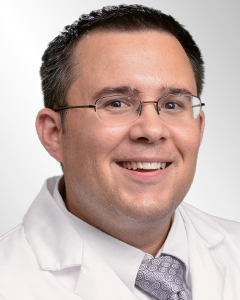Have you ever had a headache so mind-numbing and painful that you could barely think? Maybe it was a migraine or sinus headache, but it’s also possible that it was a cluster headache.
Cluster headaches occur when you have severe, ongoing pain on one side of your head. They’re called cluster headaches because they occur frequently over a short period of time at the same time of day or night. Though these headaches lead to intense pain that make it difficult for people to sleep, they can be treated and prevented.
Understanding Cluster Headaches
We don’t currently know what causes cluster headaches, but facial nerves that cause an artery in the eye to dilate may contribute to this condition. Cluster headaches can lead to intense pain for many people.
“Patients tell me it feels like they’re being mutilated with an ice pick and is worse than anything they’ve ever felt,” Juline Bryson, M.D., assistant professor of neurology at Wake Forest Baptist Medical Center and a board-certified headache specialist, said in recent press release, adding that these headaches are so rare they’re often misdiagnosed as migraines or allergy-related. Misdiagnosis often leads to the wrong treatment for patients, causing them to continue to have painful cluster headaches.
How do you know if you have a cluster headache? Symptoms include congestion, runny nose, redness on one side of the face and sweating. What differentiates these headaches from other headaches is that they occur every day for several weeks and then stop. They also tend to happen at the same every year. This is different from a migraine, a recurring headache that occurs anywhere from several times a week to a few times a year or even every couple of years. Light sensitivity also can affect migraines, a condition that sometimes includes vomiting and nausea. Facial pain and head pain are typically signs of a sinus headache, which are caused by sinus inflammation.
A person with 15 or more headache days per month is considered to have chronic headaches. These headaches can be migraines, regular headaches, pressure headaches or cluster headaches. It's critical to learn what kind of pain you’re experiencing if you have chronic headaches so that you can treat them appropriately.
Treating Cluster Headaches
Though we don’t know the cause of cluster headaches, several things can help you reduce your risk for them and ease certain symptoms, including regular exercise, avoiding alcohol and smoking and getting enough rest every night.
If your headaches are severe, seek professional help. Cluster headaches are different than other headaches, though they may present similarly. Specialized physicians who are experts in headaches can help you. These headaches may not respond to regular over-the-counter medicines, so you may need a class of medicines called triptans or you could be prescribed non-triptans, depending on your allergies or each drug’s effectiveness. These drugs can be paired with painkillers and should take effect within 24 hours.
You may consider abortive medicine (taken when you first experience the headache), preventive medicine (taken daily) and reactive medicine (a steroid taken if abortive treatment doesn’t work). An example of advanced treatment for cluster headaches might include all three approaches with several options of abortive pills.
A new treatment is now available for cluster headaches, too. In April, the FDA approved the vagus nerve stimulator. The device stimulates the vagus nerve, which runs from the brain to the colon and helps to regulate many of the body’s responses. Studies have shown the vagus nerve stimulator reduces pain: it helped about 25 percent of people with cluster headaches who participated in the research. The vagus nerve stimulator may be a viable option for patients who have tried other treatments unsuccessfully.
If you have cluster headaches, tell your physician immediately and find a headache specialist who can help. You can find a local specialist on the website of the United Council for Neurologic Subspecialties or contact one of our qualified, highly skilled neurologists.
Headaches can make it difficult to perform routine, everyday tasks. If you’re unsure whether your head pain is a cluster headache, migraine or something else, see a doctor, especially if you have ongoing pain. If you have severe acute headache, you must rule out it’s not something serious and a trip to the emergency room may be necessary for brain imaging. A physician can pinpoint the cause of your headache and prescribe medicine or other treatments that lead to relief.
We Build Relationships
We believe that maintaining a healthy lifestyle is the key to living a longer, healthier life. Orlando Health Physicians strive to build a relationship with each patient. Request an appointment with one of our primary care physicians with offices located throughout Central Florida.
Schedule an Appointment





